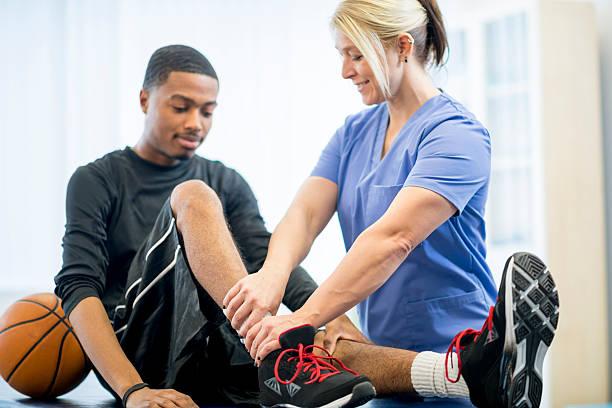When To See A Sports Physician: Signs You Need Professional Help

Athletic pursuits, whether professional or recreational, are rewarding but often come with physical challenges. Minor aches and pains are common, but there are instances when you need more than rest and over-the-counter remedies. When you see a sports doctor, it can mean the difference between getting better quickly and having a problem that lasts for a long time and hurts your health and performance. Here’s how to recognize the signs that you need professional help.
Unresolved Pain After Rest
It’s normal to experience soreness after intense activity, but this typically resolves with rest, hydration, and proper nutrition. If you’re dealing with persistent pain that doesn’t subside after a few days or worsens with time, it’s a red flag. Chronic pain could indicate underlying issues like a stress fracture, tendonitis, or ligament damage. A sports physician specializes in diagnosing these conditions and can recommend targeted treatments to get you back on track.
Decreased Performance Without an Obvious Cause
Are you finding it harder to perform at your usual level despite maintaining your training routine? Subtle injuries or overtraining might be the culprits. Conditions such as muscle imbalances, joint dysfunctions, or early-stage injuries often go unnoticed until they begin to affect performance. A sports physician can assess your biomechanics and pinpoint issues that may be holding you back, providing strategies to optimize your performance.
Swelling That Persists
Swelling is your body’s natural response to injury, but it should decrease over time. If swelling persists, is accompanied by redness or warmth, or restricts movement, it could signal something more serious, such as a ligament tear or infection. A sports physician can evaluate the situation, perform imaging tests if necessary, and develop a treatment plan tailored to your needs.
Frequent Injuries
If you seem to be constantly battling injuries, whether it’s ankle sprains, muscle strains, or joint pain, it’s time to seek professional help. Recurring injuries may indicate underlying issues like improper training techniques, inadequate recovery, or biomechanical imbalances. A sports physician can analyze your history, identify patterns, and help prevent future injuries by addressing the root causes.
Joint Instability or Locking
Experiencing joint instability or the sensation that your knee, shoulder, or ankle might “give out” is not something to ignore. Likewise, if a joint lock or becomes difficult to move, you may be dealing with structural damage such as a torn ligament, meniscus injury, or cartilage damage. Most of the time, these problems need to be treated right away by a doctor. Depending on how bad the problem is, a sports doctor can help you decide whether to have surgery or not.
Lingering Numbness or Tingling
If your arms, legs, or other parts of your body feel numb, tingly, or weak, it could mean that a nerve is pinched or hurt. Conditions such as herniated discs or carpal tunnel syndrome might be the cause. A sports physician is equipped to diagnose nerve-related injuries and create a plan to alleviate symptoms and prevent further damage.
Difficulty Returning to Activity After Injury
Returning to sports or physical activity after an injury should be gradual and guided by a professional. If you’re struggling to regain strength, flexibility, or confidence in the injured area, consulting a sports physician is critical. They can ensure your recovery process is safe and effective, minimizing the risk of re-injury.
Signs of a Concussion
Head injuries, even seemingly minor ones, should always be taken seriously. Symptoms like headaches, dizziness, confusion, nausea, or difficulty concentrating after a head impact may indicate a concussion. A sports physician is trained to evaluate and manage concussions, ensuring you recover fully before resuming physical activities.
Training for High-Intensity Goals
Even without an injury, seeing a sports physician can be beneficial if you’re training for high-intensity goals such as marathons, triathlons, or competitive sports. They can provide guidance on proper techniques, injury prevention, and performance enhancement, helping you achieve your objectives while maintaining your health.
Conclusion
Listening to your body is crucial for long-term athletic success. If you’re experiencing unresolved pain, recurring injuries, or any of the other signs mentioned, it’s time to consult a sports physician. These experts know what athletes need and can give you individualized care to help you get better and do your best. Ignoring warning signs can make problems worse, so don't be afraid to get help from a professional when you need it.
Taking proactive steps with the expertise of a sports physician ensures that you can continue to enjoy your sport while safeguarding your health for years to come.

Comments